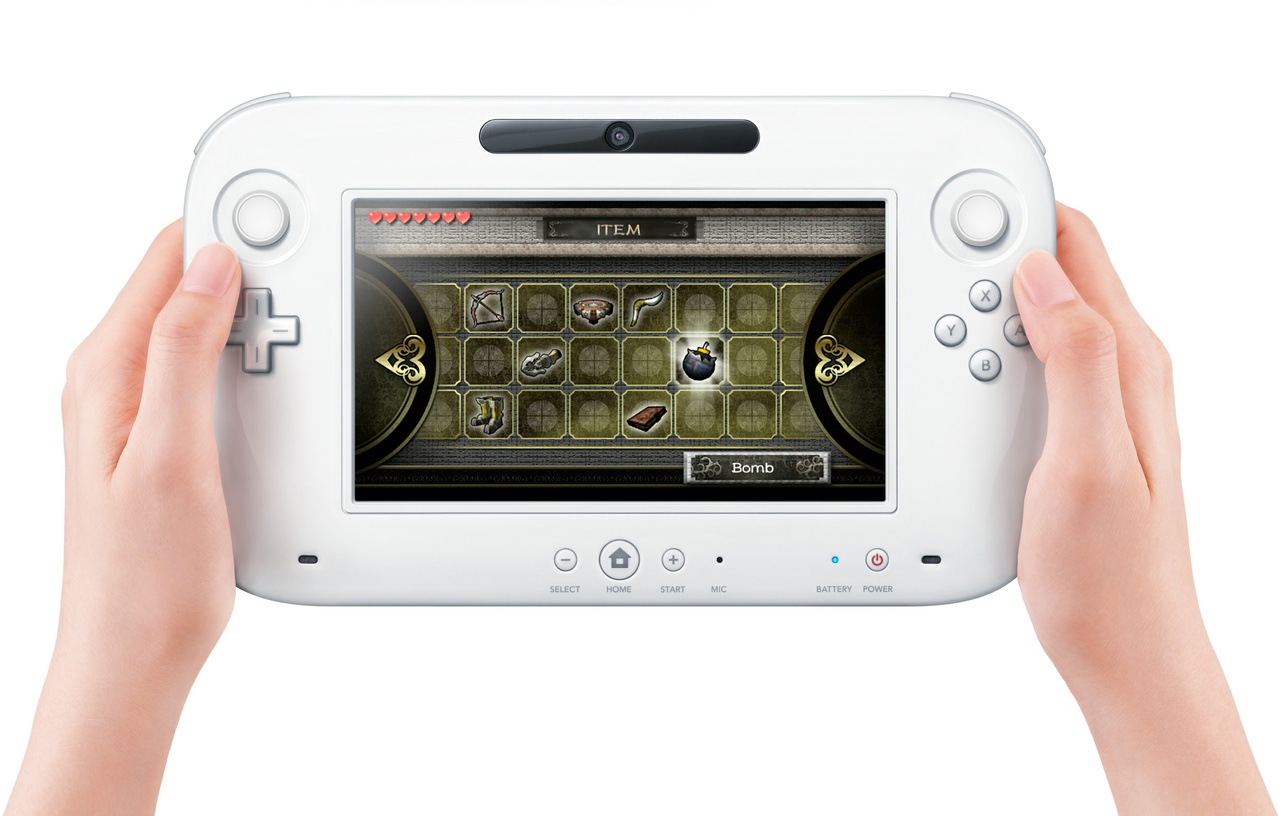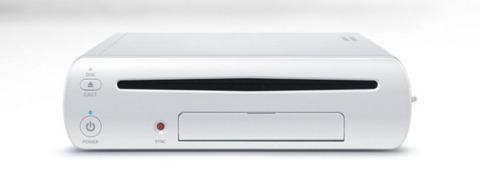Next-Gen Console Wars: 10 Steps to Dominance for the Wii U
What Nintendo needs to dominate in the next generation.
With Nintendo's Wii follow-up, the Wii U, due at the end of this year, the talk of next-generation consoles is already crackling. Soon we'll be overcome with rumors, leaks, and speculation about the eighth generation of game systems, which includes the next hardware from Microsoft and Sony. But what are at least 10 things each console manufacturer needs to do to find success in the next iteration of the system wars? Previously, Microsoft and Sony were in the spotlight. This week, it's time to see what Nintendo must do if it wants the Wii U to come out on top.
What Nintendo Needs to Do
Don't Pull a Sega
The Dreamcast was a fantastic piece of hardware with one of the best launch lineups in gaming history. It had revolutionary elements: keyboard compatibility, online functionality, a screen in the controller, and an add-on microphone. Yet, for all its innovation, the Dreamcast came out too early and was felled in large part by the release of the PlayStation 2 a year later. What was so special about the PS2? It had a DVD drive and, for many, it was their first DVD player.

For the Wii U to beat the later arrivals of the PlayStation 4 and the next Xbox, it must have some elements of future proofing. While it's unlikely for the Wii U to include a Blu-ray player, it must come with viable solutions for streaming media and cloud services. Of course, there were other reasons the Dreamcast had a short life span, and most of those reasons serve as a warning for Nintendo: provide the same content as the competition, don't become too niche, and don't get too focused on innovation (keep it simple, stupid).
Keep Cost Down
Rumors have the Wii U costing anywhere from $250 to $600. It's the first next-gen console being released, but its immediate competition is the PlayStation 3 and the Xbox 360, both of which are still seeing high-quality games even toward the end of their life cycles. The Wii U is initially fighting against two consoles priced under $300 and a global economy that is still floundering.
A game system with a high-quality touch-screen controller may be more valuable to some than the pricey iPad, but people buy a portable tablet for different reasons than an at-home game console. Keep in mind that Nintendo's Wii had wild success because the traditionally non-gaming audience actually bought the system. Plus, it was affordable, different, and very casual. Converting those owners into Wii U buyers won't be easy if the price tag is too high.
A Controller that Improves Gaming
We've seen and experienced very little of the Wii U so far, and many of the impressions formed over the past year are made more on assumption than fact. The truth is that no one is certain how much the touch-screen controller will improve the games as a whole. Certainly, games made specifically for the controller and the system will be just fine. But can Aliens: Colonial Marines or Assassin's Creed III be superior to the Xbox 360 and PS3 versions? Will these games feature gimmicky additions or will the Wii U deliver a wildly enhanced experience? It needs to be the latter, or the Wii U won't have much attraction to the core gamers who have avoided the Wii the past few years.
Senua's Saga: Hellblade II Everything To Know The Rogue Prince of Persia - Official New Release Date Gameplay Trailer Genshin Impact - Cutscene Animation "Arataki & Flying Lavender Melon's Rockin' for Life Duet" MultiVersus – Official The Joker Gameplay Reveal Trailer | “Send in the Clowns!” 15 MORE Things You STILL Didn't Know In Zelda Tears Of The Kingdom Firearms Expert Reacts to Ghost Recon Breakpoint's Guns Xbox Studio Closures Are Confusing | Spot On Gray Zone Warfare | Community Briefing Trailer #1 Squirrel With A Gun - Official Announcement Gameplay Trailer Night Slashers: Remake || Official Christopher Smith Character Gameplay Trailer Senua's Saga: Hellblade II - Senua's Psychosis Feature Trailer Street Fighter 6 - 8 Minutes of Akuma Gameplay (High-Level CPU)
Please enter your date of birth to view this video
By clicking 'enter', you agree to GameSpot's
Terms of Use and Privacy Policy
Solution for Traditional Gaming
Revolutionary features are great, but they can take you only so far. Aside from its technical limitations, the Wii has not been a great machine for traditional console gaming. Many gamers just want to sit on the couch and chill out with a controller in hand. For many, gaming is about escapism and relaxation. All the innovation in the world does no good if people can't lounge on the couch and zone out. There needs to be an option that services people who want a traditional gaming experience, or those folks will continue to support Sony and Microsoft.
Proper Online Service
Online gameplay has been critical for the Xbox 360's success, and online services have bolstered the PS3's popularity, yet Nintendo has been slow to adapt. The Wii U needs a legitimate online service--one that makes it easy to find and add friends, makes multiplayer gaming a priority for developers, and offers services on par with Sony and Microsoft.
Forget fancy controllers or the next Mario game. The long-term future of the Wii U relies on Nintendo embracing online. This is where Nintendo needs to find a way to be an innovator and not just an imitator. It's rumored that Nintendo is working with Valve to provide a version of Steam to the Wii U. If this is true, Nintendo will make a bold and necessary step toward establishing itself as an online console powerhouse.
Unplugged
A controller with a big touch screen is nifty, but the benefit of a tablet is that you can take it anywhere. The Wii U controller should not be strictly tied to the Wii U. You need to be able to use that giant tablet when the TV is off, when you're cooking in the kitchen or relaxing in the loo. Nintendo is nudging into Apple's world with its controller, and therefore the iPad is a very real competitor. The Wii U controller doesn't need the level of versatility of a tablet, but it can't just be a fancy remote control either. The movement in the next generation of gaming will be expanding the experience so that some part of the gameworld travels with you no matter where you're headed. The Wii U controller is a perfect platform for such actions.
No More Weak Ports
One of the Wii's failings was an inability to provide quality multiplatform ports. Most major Xbox 360 and PS3 releases had to be redesigned for the Wii, and not with the best results. Nintendo has proudly announced a number of ports of major upcoming titles that may look as good or better on the Wii U. That is great for the next year, but that won't serve Nintendo two or three years down the line when the next Xbox and PS4 are in full swing. Yes, the Wii U can handle a port of a current-generation game, but can it handle what is coming to the Xbox 720 and PS4 in 2015? If not, the Wii U will start to suffer a similar dearth of quality modern ports as the Wii.
Embrace the Past
Here's a no-brainer. Nintendo is still in the console business because of its iconic game franchises. You may not like any of the features the Wii U offers, but it's still the only spot for a new console Metroid game, the next Mario title, Zelda, and Mario Kart. Continue to mine the hits, and regardless of the other factors, gamers will come to the Wii U.
Become the Sports King
The Wii pretty much killed most sports fans' loyalty with weak and gimmick-filled versions of Madden and other franchises. Through the N64 era, Nintendo was actually well regarded for its sports games. From Tecmo Bowl on the NES to NHL '94 on the SNES to All-Star Baseball 2001 on the N64, many gamers had their first virtual sports experience on a Nintendo console. It's time to bring those sports fans back into the fold. The touch controller could be great for simulation sports, enabling players to draw out plays during a time-out in an NBA 2K game, as just one example.
Live Long or Fade Fast
A strong launch lineup of games equal or superior to those on the Xbox 360 or PS3 would be a great starting point for the Wii U. However, Nintendo has made a habit of letting its platform lineups weaken a few years after release. If the Xbox 360 is any indication, console life cycles are getting a little longer.
A console has to be built to last, and that means continual support over the years. The first two years of a console matter, of course, but real success comes after year three. That's when developers start to unlock the real power of a system, when production costs lower enough to allow consoles to become much more affordable, and the sweat of a hard-fought launch are truly rewarded. Nintendo can't let up at all. It must be aggressive in pricing, exclusives, ports, and online services from year one to year six of the Wii U's life cycle.
'Got a news tip or want to contact us directly? Email news@gamespot.com

Join the conversation